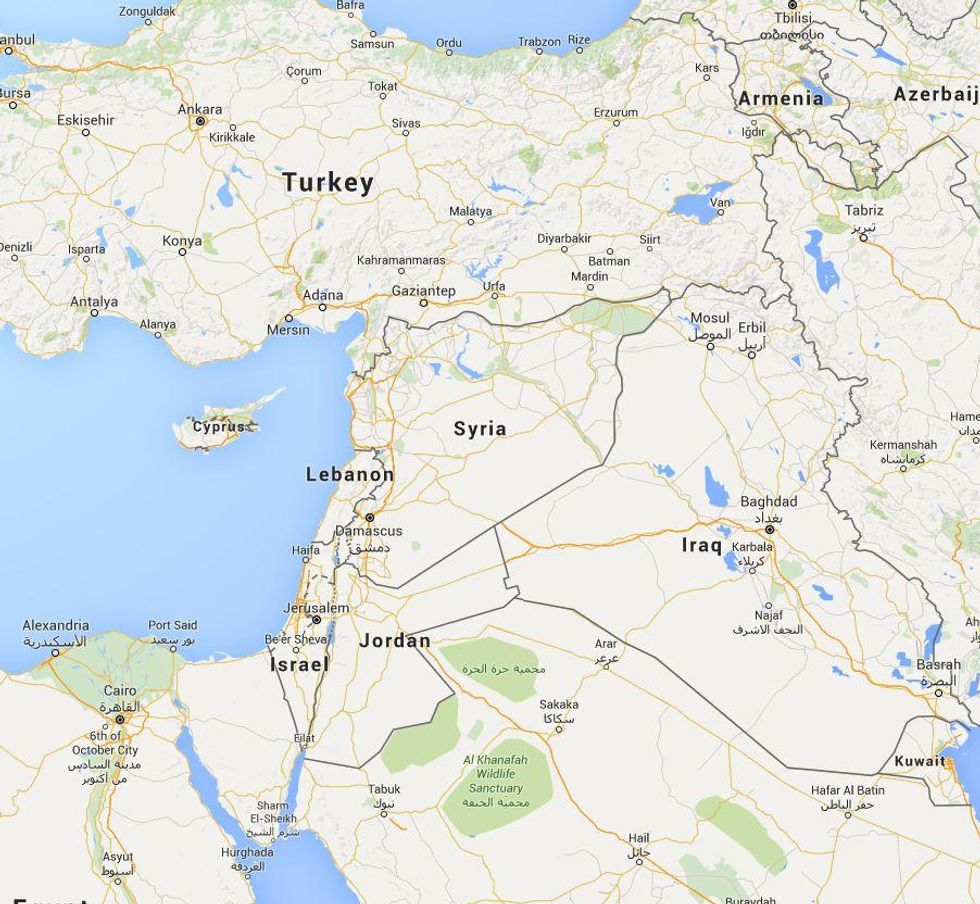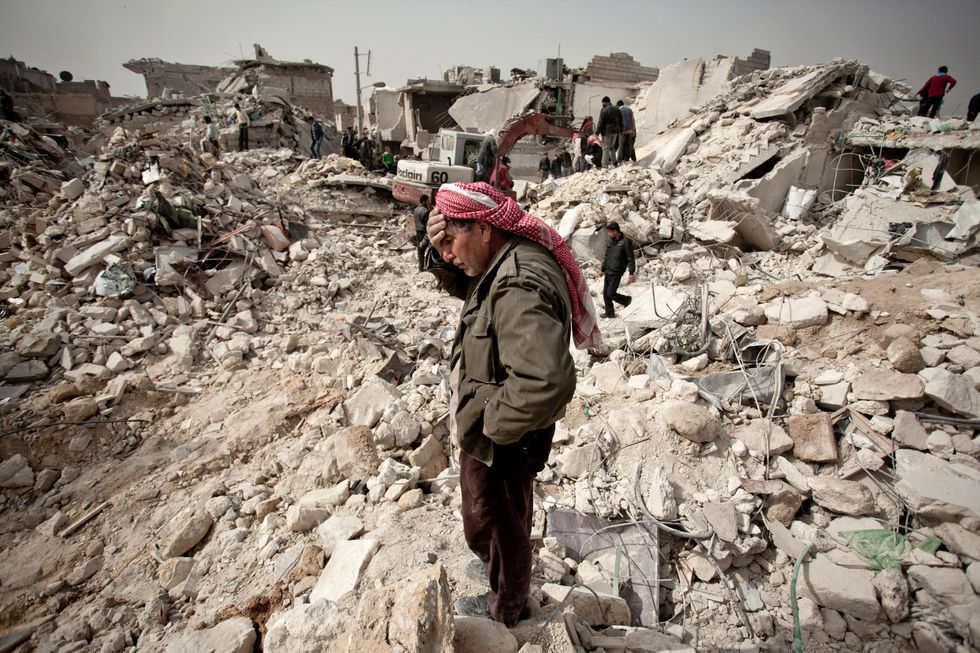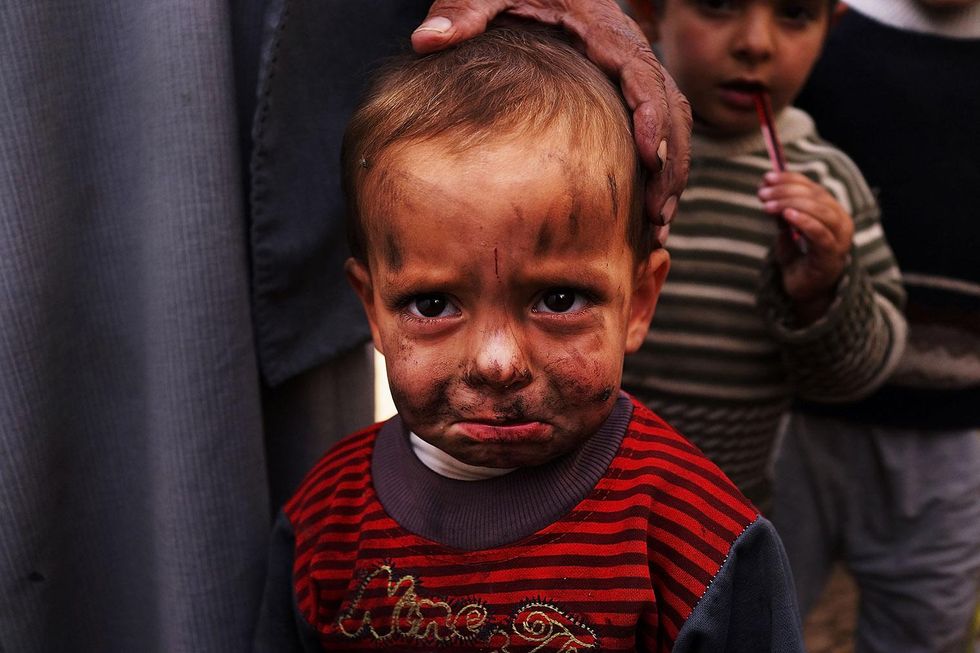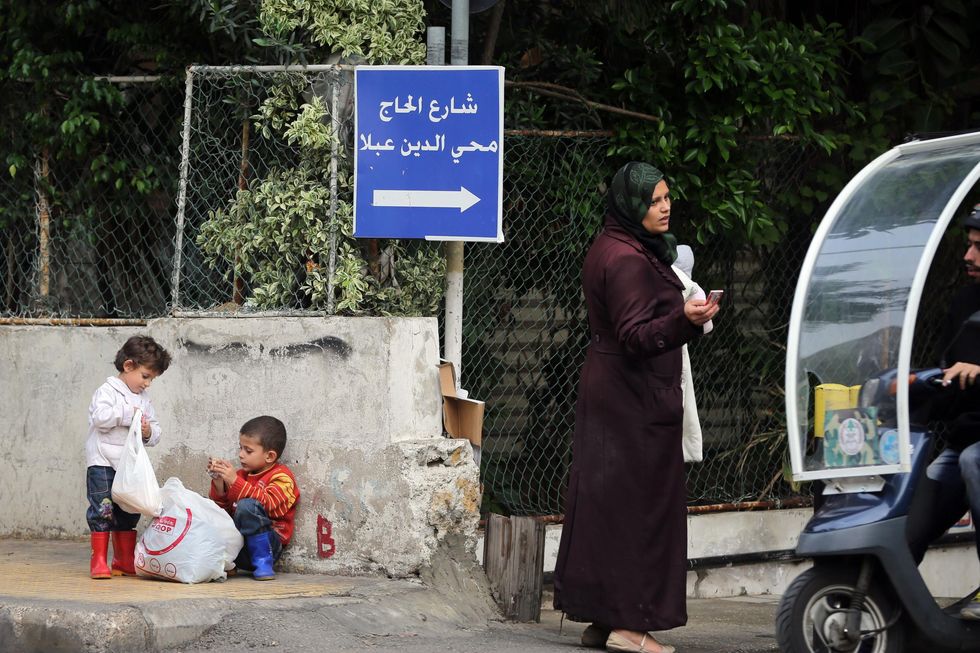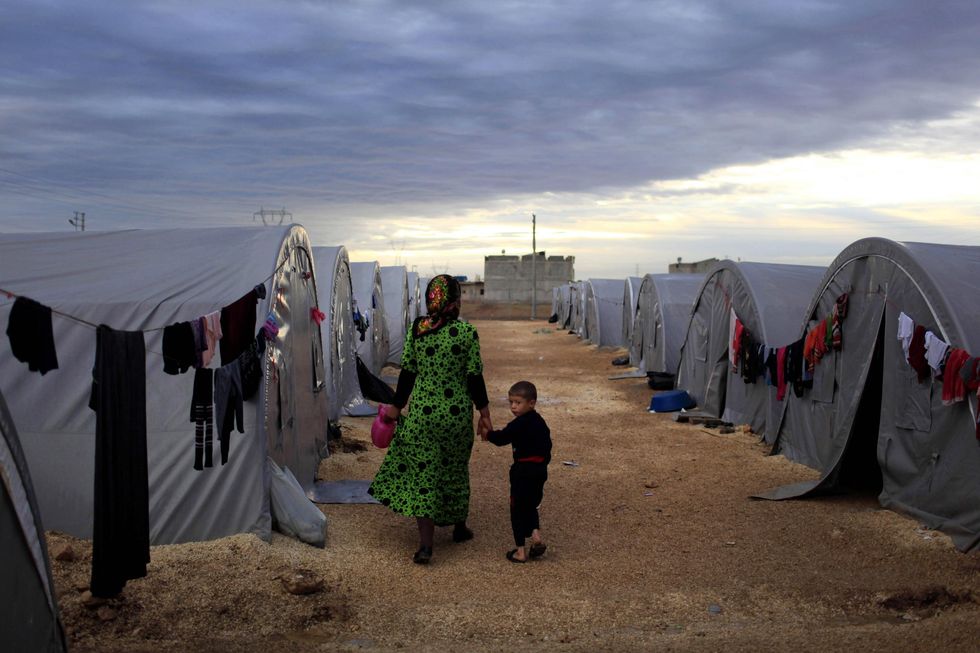News
Louis Dor
Sep 26, 2015
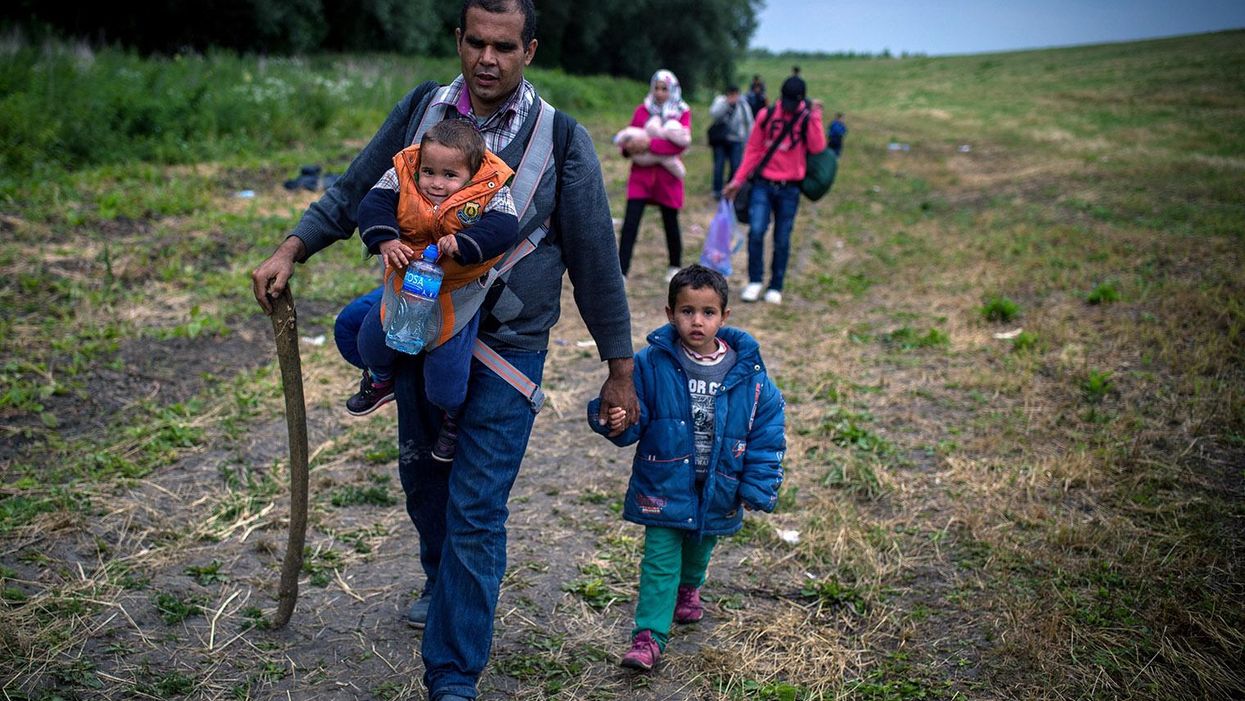
A group of migrants from Syria walk towards the border with Hungary, near Kanjiza on 25 June 2015.
Some newspapers would have you believe that there’s only one reason Syrian refugees are coming to Europe – because they are… (in big shouty capitals)...
ECONOMIC MIGRANTS
As the UN Refugee Agency (UNHCR) has explained, the reasons refugees leave the Middle East region for Europe are actually far more nuanced than the money-grabbing image this word conjures.
More than four million Syrian refugees are currently living in Syria's neighbouring countries.
And since 2011, almost 429,000 Syrians have applied to live in Europe. Many applications come from people already living in Lebanon, Turkey, Jordan and Iraq, who are still trapped in miserable conditions.
The UN has been monitoring the situation since the civil war broke out, and has identified seven principal factors behind the movements of Syrian people once they've fled their home country.
1) Loss of hope
A Syrian man stands on the rubble of his house while others look for survivors and bodies in Aleppo on 23 February 2013 (Picture: Pablo Tosco/AFP/Getty Images)
With Syria's crisis now into its fifth year and no sign of a solution in sight, hope is dwindling for many refugees. Feelings of uncertainty about the future are compounded by miserable conditions, fuelling a sense of despair and desperation.
2) Deepening poverty
Refugees in Lebanon cite the high cost of living as a factor in deciding to stay or go and refugees in Egypt and Jordan - both countries that were much richer than Syria even before the war started - say it's getting harder to afford basic needs.
In many cases people have no savings and valuables have already been sold off just to meet basic living costs.
3) Limited access to work
Many Syrians in Jordan, Egypt and Lebanon struggle to make a living due to legal restrictions on looking for work. Refugees in Iraq say the large number of internally displaced people has increased competition for jobs in the Kurdistan region of the country. Meanwhile, work on construction sites in the region has dried up with the drop in oil prices.
Lack of access leads refugees to resort to informal employment, risking exploitation, unsafe conditions or manipulative employers who withhold payment. In some camps, there is a growing prostitution problem.
Refugees can also be sanctioned for working illegally. Under new regulations in Lebanon, refugees must sign a pledge not to work when renewing their residency status.
4) Aid and healthcare shortfalls
Aid programmes for refugees and host communities in the region have been plagued by chronic funding shortages. The current inter-agency plan for Syria for 2015 is only 41 per cent funded, which has lead to cuts in food aid for thousands of refugees, while those that do receive it have to survive on $0.45-0.50 a day.
Many refugees in Jordan told UNHCR that food aid cuts were the last straw in their decision to leave the country. As a result people have resorted to begging and child labour.
A Syrian refugee woman sells chewing gum as her children sit on a street in Beirut on 2 December 2014 (Picture: JOSEPH EID/AFP/Getty Images)
Inadequate funding has also seen refugees losing free access to healthcare. As a result, 58.3 per cent of adults with chronic conditions do without medicine or health services, up from 23 per cent in 2014.
5) Hurdles to renewing legal residency in Lebanon and Jordan
Due to new regulations, refugees already in Lebanon must pay $200 per year to renew their stay, causing many to leave for Turkey. They are required to sign a pledge not to work and they must present a certified lease agreement. Many refugees are fearful of arrest or detention and feel vulnerable because of lapsed residency visas.
In Jordan, the new legal requirement for a $42 health verification certificate is also proving prohibitive.
6) Scant education opportunities
In Jordan, worsening conditions mean some 20 per cent of children are abandoning school in order to work and in some cases girls are being forced into early marriage. Some 90,000 Syrians of school age have no formal education.
(Picture: Gokhan Sahin/Getty Images)
Across the region, Syrian youth are missing out on tertiary education and losing hope about their future.
More: Yanis Varoufakis totally skewered the UK's response to the refugee crisis
More: An open letter to anyone who ever talked down the refugee crisis
Top 100
The Conversation (0)
